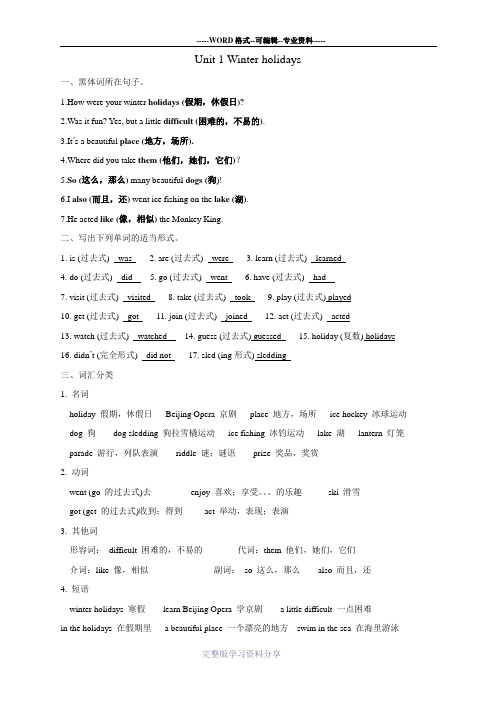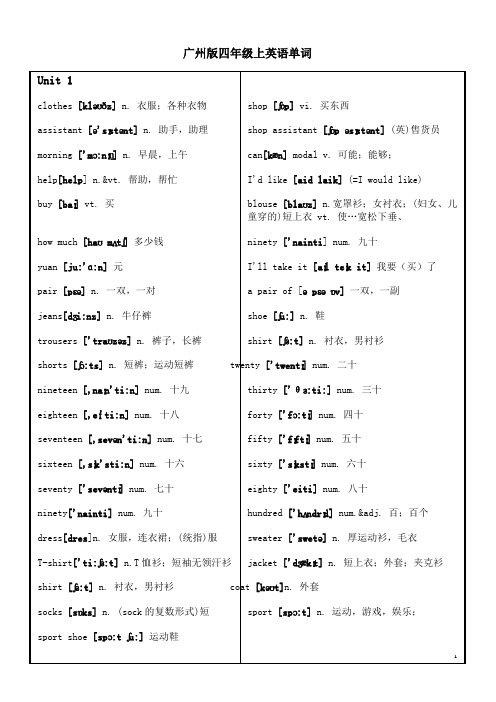neighbour复数形式
neighbourhood的意思用法总结

neighbourhood的意思用法总结neighbourhood有也居住区,周边地区,大约,在…附近的意思。
那你们想知道neighbourhood的用法吗?今天给大家带来了neighbourhood的用法,希望能够帮助到大家,一起来学习吧。
neighbourhood的用法总结大全neighbourhood的意思n. 居住区,周边地区,大约,在…附近neighbourhood用法neighbourhood可以用作名词neighbourhood是可数集合名词,意思是“邻近地区,近邻,四邻,街坊”等。
当以其单数形式作主语时,如强调一个整体,谓语动词用单数形式,如强调其成员,谓语动词用复数形式。
neighbourhood是英式拼法,美式拼法为neighborhood。
neighbourhood用作名词的用法例句Our neighbourhood police are very friendly.我们邻近的警察非常友善。
The whole neighbourhood was reduced to ashes.整个邻近一带被化为灰烬。
Contribute to physical and mental health, family harmony, neighbourhood relations, learning and career progress, social harmony and stability.有助于身心健康,家庭和睦,邻里关系,学习及事业进步,社会的和谐稳定。
neighbourhood用法例句1、He was born and grew up in the Flatbush neighbourhood of Brooklyn.他出生在布鲁克林的弗拉特布什一带,并在那儿长大成人。
2、Its speed is probably in the neighbourhood of 380mph or even more.它的时速大约达到了380英里,或者更快。
高中英语单词天天记neighbourhood素材

· neighbourhood· n. ['neɪbəhʊd] ( neighbourhoods )·· 双解释义· C地区; 某地区的人; 与某处邻近的地区(people living in a) district; area near a particular place· 基本要点•1.neighbourhood是可数集合名词,意思是“邻近地区,近邻,四邻,街坊”等。
当以其单数形式作主语时,如强调一个整体,谓语动词用单数形式,如强调其成员,谓语动词用复数形式。
2.neighbourhood是英式拼法,美式拼法为neighborhood。
•· 词汇搭配•形容词+~•bad neighbourhood 不安全的地区•changing neighbourhood 变化的环境•friendly〔good, nice, pleasant〕 neighbourhood 友好〔良好,和蔼,友善〕的邻居•residential neighbourhood 住宅区•ethnic neighbourhood 少数民族聚居区•unsafe neighbourhood 不安全的地区•介词+~•in a neighbourhood 在…环境之中•in the neighbourhood of 在…附近,大约· 常用短语•in the neighbourhood of1.在…附近in the area around a point or placeHe lives somewhere in the neighbourhood of the station.他住在火车站附近的某个地方。
2.近于,大约approximatelyThe total was in the neighbourhood of 100 pounds.总数大约是100英镑。
常见不规则名词复数形式表

令狐采学创作令狐采学创作常见不规则名词复数形式表令狐采学单数 音标复数音标释义备注C hinese [ˌtʃai'ni ׃z]C hinese [ˌtʃai'ni ׃z]n.[c]中国人;[u]汉语这些名词的单数和复数完全相同,在实际学习应用中要特别留意,加以区分,弄清楚在该处是单数还是复数J apanese [ˌdʒæp ə'ni ׃z] J apanese [ˌdʒæp ə'ni ׃z] n.[c]日本人;[u]日语 d eer [di ə] d eer [di ə] n.[c]鹿f ish [fi ʃ] f ish [fi ʃ] n.[c]鱼,鱼类;[u]鱼肉 m eans [mi ׃nz] m eans [mi ׃nz] n.[pl.]金钱,财富 s heep [ʃi ׃p] s heep [ʃi ׃p]n.[c]绵羊c hild [t ʃaild] c hildren ['t ʃildr ən] n.[c]儿童,小孩 f oot [fut] f eet [fi ׃t] n.[c]脚,足;英尺 这些单词的复数形式是将名词原形中的字母“oo”改为字母“ee”而来t ooth [tuθ] t eeth [ti ׃θ] n.[c]牙齿,齿 g oose[gu ׃s]g eese[gi ׃s] n.[c]鹅,母鹅 o x [ɔks]o xen ['ɔks ən] n.[c]牛,(去势的)公牛 m an [mæn] m en [men] n.[c]人,男人;[u]人类 这些单词的单数、复数的变化主要是man 的变化,将名词man 中的字母“a”改为字母“e”而来 chair m an ['t ʃe əmæn] chair m en ['t ʃe əm ən] n.[c]主席,(会议)主席 French m an ['frent ʃmæn] French m en ['frent ʃm ən] n.[c]法国人 gentle m an ['d ʒentlmæn] gentle m en ['d ʒentlm ən] n.[c]有教养的人;先生 police m an [p ə'li ׃smæn] police m en [p ə'li ׃sm ən] n.[c]警察,男警察 wo m an ['wum ən] wo m en ['wimin] n.[c]妇女,女性,女人 m ouse [maus] m ice [mais] n.[c]鼠,鼠标,胆小的人 c alf [k ɑ׃f] c alves [k ɑ׃vz] n.[c]小牛,犊子,小鲸 这些单词的复数形式都是将名词原形中的字母“f”h alf [h ɑ׃f] h alves [h ɑ׃vz] n.[c]半,一半 l eaf [li ׃f] l eaves[li ׃vz] n.[c]叶,叶子,金属片令狐采学创作l oaf [l əuf] l oaves [l əuvz] n.[c]大面包,(面包的条、只) 或“fe”改为“v”再加“es”而来 k nife [naif]k nives [naivz] n.[c]小刀l ife [laif] l ives [laivz] n.[c]生命,终身,寿命 s elf [self] s elves [selvz] n.[c]本身,自己 s heaf [ʃi ׃f] s heaves [ʃi ׃vz] n.[c]捆,束,扎 s helf [ʃelf] s heves [ʃelvz] n.[c]架子 t hief [θi ׃f] t hives [θi ׃vz] n.[c]贼 w ife [waif] w ives [waivz] n.[c]妻子 w olf [wulf] w oves [wulvz] n.[c]狼 p asser-by [ˌpɑ׃s ə'bai] p assers-by [ˌpɑ׃s əz'bai] n.[c]过路人 p enny['peni]p ence pennies[pens] ['penis]n.[c]便士名词的复数形式1.通常在单数名词后加s ,例如:dog ,dogs (狗);day ,days (天,白天);house ,houses (房屋);2.以字母o 或s 、sh 、ch 、x 结尾的名词,在其后加es ,例如:tomato ,tomatoes (西红柿);kiss ,kisses (吻);brush ,brushes (刷子);watch ,watches (手表);box ,boxes (箱子,盒子);但是,o 结尾的外来词或缩写词的复数形式,只加s ,例如:piano ,pianos (钢琴);dynamo ,dynamos (发电机);photo ,photos (照片);kimono ,kimonos (和服);biro ,biros (可以吸墨水的圆珠笔);3.以辅音y 结尾的名词,在构成复数时,将y 改为i 再加es ,例如:baby ,babies (婴孩);lady ,ladies (女士);country ,countries (国家);fly ,flies (苍蝇);但是,以y 结尾但y 前为元音的名词,在构成复数时,直接加s ,例如:donkey ,donkeys (驴子);boy ,boys (男孩);day ,days (天);4.有12个名词以f 或fe 结尾,在构成复数时,改f 或fe 为v 再加es ,它们是:wife (妻子);life (生命);knife (小刀);wolf (狼);self (自身);calf (小牛);shelf (架子);leaf (叶);loaf (面包的条、只);thief (贼);sheaf (捆);half (半);而名词scarf (围巾);wharf (码头);hoof (蹄)的复数形式,可加s 或改f 为v 再加es ;其他的以f 或fe 结尾的名词,在构成复数形式时直接加s ;5.有些名词用变化元音的方法来构成复数形式,例如:man ,men (男人);woman ,women (女人);foot ,feet (脚,英尺);mouse ,mice (老鼠);louse ,lice (虱子);goose ,geese (鹅);tooth ,teeth (牙齿);ox ,oxen (牛);child ,children (孩子);6.以ics 结尾的词,例如:mathematics (数学);physics (物理学);politics (政治学)等,它们具有复数形式,因此谓语通常用复数动词,但如果是说明它们是某类学科,则认为是单数,谓语动词可用单数形式;7.复合词的复数形式:一般情况下,将最后一个词变成复数即可,例如:armchair,armchairs(扶手椅子);bookcase,bookcases(书橱,书箱);但是,当man和woman前置时,两部分都要变成复数形式,例如:men students(男学生);women students(女学生);与介词或副词构成的合成名词构成复数时,只需要把第一个词变为复数:sister-in-law,sisters-in-law(嫂、弟媳);looker-on,lookers-on (旁观者);另外,如果合成名词以形容词结尾,通常是把第一个词变成复数:court martial,courts martial(军事法庭),有时也可是court martials。
neighbourhood的意思用法总结

neighbourhood的意思用法总结neighbourhood有也居住区,周边地区,大约,在…旁边的意思。
那你们想知道neighbourhood的用法吗?今日我给大家带来了neighbourhood 的用法,盼望能够协助到大家,一起来学习吧。
neighbourhood的用法总结大全neighbourhood的意思n.居住区,周边地区,大约,在…旁边neighbourhood用法neighbourhood可以用作名词neighbourhood是可数集合名词,意思是“邻近地区,近邻,四邻,邻居”等。
当以其单数形式作主语时,如强调一个整体,谓语动词用单数形式,如强调其成员,谓语动词用复数形式。
neighbourhood是英式拼法,美式拼法为neighborhood。
neighbourhood用作名词的用法例句Our neighbourhood police are very friendly.我们邻近的警察特别友善。
The whole neighbourhood was reduced to ashes.整个邻近一带被化为灰烬。
Contribute to physical and mental health, family harmony, neighbourhood relations, learning and career progress, social harmony and stability.有助于身心安康,家庭和谐,邻里关系,学习及事业进步,社会的和谐稳定。
neighbourhood用法例句1、He was born and grew up in the Flatbush neighbourhood of Brooklyn.他诞生在布鲁克林的弗拉特布什一带,并在那儿长大成人。
2、Its speed is probably in the neighbourhood of 380mph or even more.它的时速大约到达了380英里,或者更快。
Unit2Neighbours知识讲义牛津译林版英语七年级下册

牛津版译林英语7B知识点总结Unit2 Neighbours1.Where are you going?【知识点一】:be doing(1)现在进行时表将来(2) go、e、leave、move表示移动的词,都可以用“现在进行时表将来”(3)进行时开始表示:近期一直在做某事2. I'm afraid they won't wele visitors like you. 恐怕他们不会欢迎像你这样的客人。
(P18)【知识点一】afraid adj. 害怕的(1) I'm afraid (that) + 宾语从句, 恐怕Eg. I’m afraid (that) you are wrong.(2) be afraid of doing sth 害怕做某事= be afraid to do sth(3) I'm afraid not. 恐怕不是这样的。
Eg.—Can you get there before 6 o’clock? —I’m afraid not.(4) I'm afraid so. 恐怕是这样的。
Eg.—Is it going to rain tomorrow? —I’m afraid so.【随堂练习】1. —Will your father e to see your piano show tomorrow?— . He is having an important meeting in Beijing now.A. They'd like toB. You're rightC. I'm afraid soD. I'm afraid not2. —Would you like to help me with my lessons?—Sorry. .I have no time now .A. I'm sure.B. I'm afraid.C. I'd like.D. I hope.【知识点二】visitor (n.)拜访者①visit v. 参观;拜访n. 参观visit sp. = be on a visit to sp.②构词法:动词+or→表示人的职业或身份act→ actor invent→ inventor collect→ collector【随堂练习】1. Do you know the (visit) telephone numbers? I want to call them.【知识点三】like(1) v. 喜欢like doing sth./ like to do sth. 反义词:dislike = hate(2) prep. 像反义词:unlikebe like/look like①问性格,品质What be sb. like?Eg.—What is he like? —He is kind and helpful.②问外貌:What does sb. look like? = How does sb. look?Eg.—What does he look like? = How does he look?—He looks tall and strong.区别:What does sb like (doing)? 问爱好(3)不能单独作谓语: be like 像…look like 看起来像… sound like听起来像【随堂练习】1.The boy, his father, playing football.A. like;likesB. likes;likeC. liked;likeD. like; will like2.— __________ your hometown like? —It’s a good place ___________.A. How is; to liveB. How does; to liveC. What is; livingD. What is; to live3. What is your father like?A. He likes history best.B. He likes eating meat.B. He is kind and friendly. D. He is forty years old.补: 问职业①What be sb? ②What be sb’s job? ③What do/does sb do?3. How many buildings are there in your neighbours? 在你居民区有多少幢楼?【知识点一】how often, how many times, how soon, how long 与how far的区别【随堂练习】1. — ______ do you help your parents do housework? — Every evening.A. How oftenB. How longC. How soonD. How far2. — ______ music do you listen to every day? —One hour.A. How manyB. How longC. How soonD. How much3. — ______ hours of music do you listen to every day? —One.A. How manyB. How longC. How soonD. How much4. — ______ will you e back? —In two days.A. How oftenB. How longC. How soonD. What time4. Most of them have 14 floors. 它们大多数有14层。
neighbour的意思用法总结

neighbour的意思用法总结neighbour有邻居,邻近的人[物],邻国,世人的意思。
今日我给大家带来了neighbour的用法,盼望能够协助到大家,一起来学习吧。
neighbour的意思n.邻居,邻近的人[物],邻国,世人vt.接壤,邻接vi.邻近,与…有睦邻关系adj.邻居的,邻近的变形:过去式: neighboured; 此时此刻分词:neighbouring; 过去分词:neighboured;neighbour用法neighbour可以用作名词neighbour的根本意思是“邻居”,还可作“邻近的人〔物〕”“邻国”解。
用于譬如时,可指不离左右的东西。
neighbour是英式拼法,美式拼法是neighbor。
neighbour用作名词的用法例句My neighbour is always putting on airs.我的邻居总是装腔作势。
Ill board out my children with my neighbour.我将把孩子们寄在邻居家膳宿。
When the big tree fell, it brought down two of its smaller neighbours.那棵大树一倒把旁边的两棵小树也弄倒了。
neighbour用法例句1.He was a terror to his neighbour.对邻居来说他是个厌烦的人。
2.His new house encroached on his neighbours land.他的新住宅侵占了邻居的土地。
3.At the examination he peeped at his neighbours paper.他考试时偷看了他邻座的卷子。
4.A wise fox will never rob his neighbours henroost.机灵的狐狸从来不会抢劫邻居家的鸡窝。
5.I babysit for my neighbour sometimes.我有时替邻居临时照看孩子。
鲁科版五年级英语下册期末复习

Unit 1 Winter holidays一、黑体词所在句子。
1.How were your winter holidays (假期,休假日)?2.Was it fun? Yes, but a little difficult (困难的,不易的).3.It’s a beautiful place (地方,场所).4.Where did you take them (他们,她们,它们)?5.So (这么,那么) many beautiful dogs (狗)!6.I also (而且,还) went ice fishing on the lake (湖).7.He acted like (像,相似) the Monkey King.二、写出下列单词的适当形式。
1. is (过去式) was2. are (过去式) were3. learn (过去式) learned4. do (过去式) did5. go (过去式) went6. have (过去式) had7. visit (过去式) visited 8. take (过去式) took 9. play (过去式) played10. get (过去式) got 11. join (过去式) joined 12. act (过去式) acted13. watch (过去式) watched 14. guess (过去式) guessed 15. holiday (复数) holidays16. didn’t (完全形式) did not 17. sled (ing形式) sledding三、词汇分类1. 名词holiday 假期,休假日Beijing Opera 京剧place 地方,场所ice hockey 冰球运动dog 狗dog sledding 狗拉雪橇运动ice fishing 冰钓运动lake 湖lantern 灯笼parade 游行,列队表演riddle 谜;谜语prize 奖品,奖赏2. 动词went (go 的过去式)去enjoy 喜欢;享受。
广州版教材英语四年级上单词(含音标)

kind[kaɪnd]n.种;类hardworking['hɑ:d,wə:kiŋ]a.努力工作的
patient['peiʃənt]n.病人handsome['hænsəm]a.英俊的;漂亮的;美观的
movie['mu:vɪ]n. (口语)电影star[stɑ:(r)]n.星,恒
postman['pəustmən]n.邮递员postmen(pl)['pəustmən]n.postman的复数形
driver['draɪvə]n.司机,驾驶员bank[bæŋk]n. (河、海、湖的)岸,堤;
manager['mænɪdʒə]n.经理;负责人factory['fæktərɪ]n.工厂
music['mjuzɪk]n.音乐;音乐课;乐曲maths[mæθs]n.数学
P.E.[,pi:'i:]physical education的缩写n.体育
art[ɑ:t]n.艺术,美术;美术课;技艺when[wen]conj.当…的时候
Unit14
get up['getʌp]起床clock[klɔk]n.时钟,计时器
check[tʃek]vt.检查;批改catch[kætʃ]v.接住;捉住;捕获;赶上;
criminal['kriminəl]n.罪犯drive[draɪv]v.驾驶,开(车);驱赶
learn[lɜ:n]vt.学,学习,学会put out[put aut]扑灭,熄灭;消除
fire ['faɪə(r)]n.火;火炉;火灾sick[sɪk]a.有病的,患病的;(想)呕
- 1、下载文档前请自行甄别文档内容的完整性,平台不提供额外的编辑、内容补充、找答案等附加服务。
- 2、"仅部分预览"的文档,不可在线预览部分如存在完整性等问题,可反馈申请退款(可完整预览的文档不适用该条件!)。
- 3、如文档侵犯您的权益,请联系客服反馈,我们会尽快为您处理(人工客服工作时间:9:00-18:30)。
neighbour复数形式
邻居的复数形式是neighbors。
它是一个英语名词,表示与某人或某个地方相邻的人或物。
我们的邻居可以是住在我们隔壁的人,也可以是住在我们附近的人。
邻居之间的关系可以是友好的,也可以是紧张的。
有些人和邻居之间建立了深厚的友谊,有些人则避免与邻居交往。
不管怎样,与我们的邻居保持良好的关系是非常重要的。
我们应该尊重他们的隐私和空间,同时也帮助他们当他们需要帮助时。
在社区中建立友好的邻里关系,可以使我们的生活更加美好和安全。
我们可以安心地留守家中,因为我们知道我们的邻居会帮助我们照顾我们的家园。
- 1 -。
